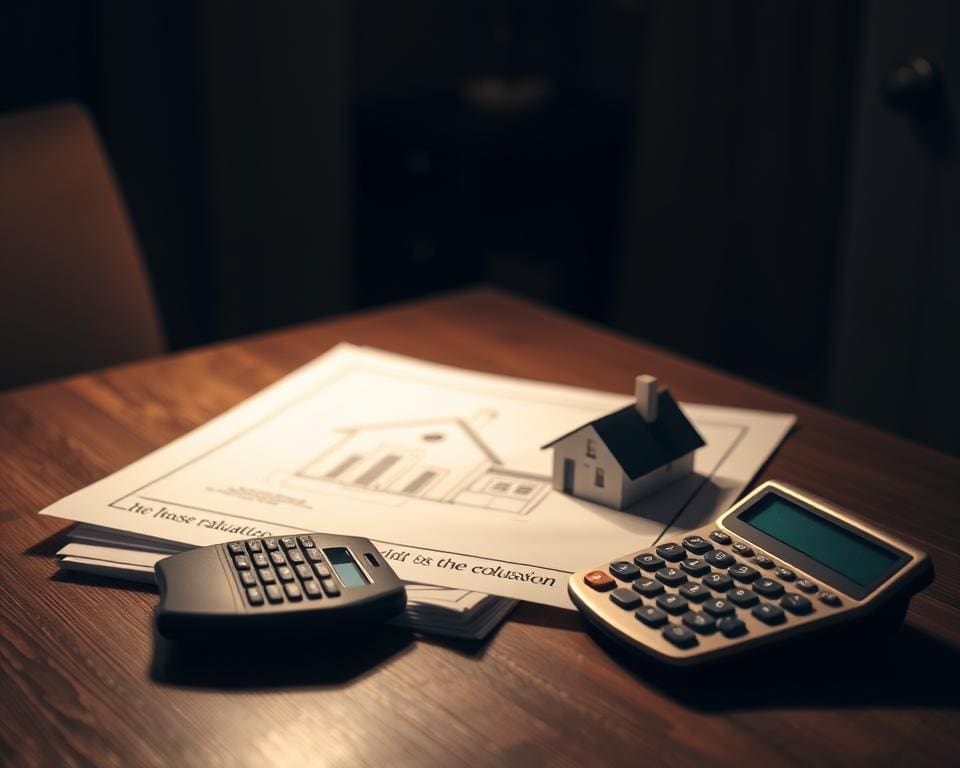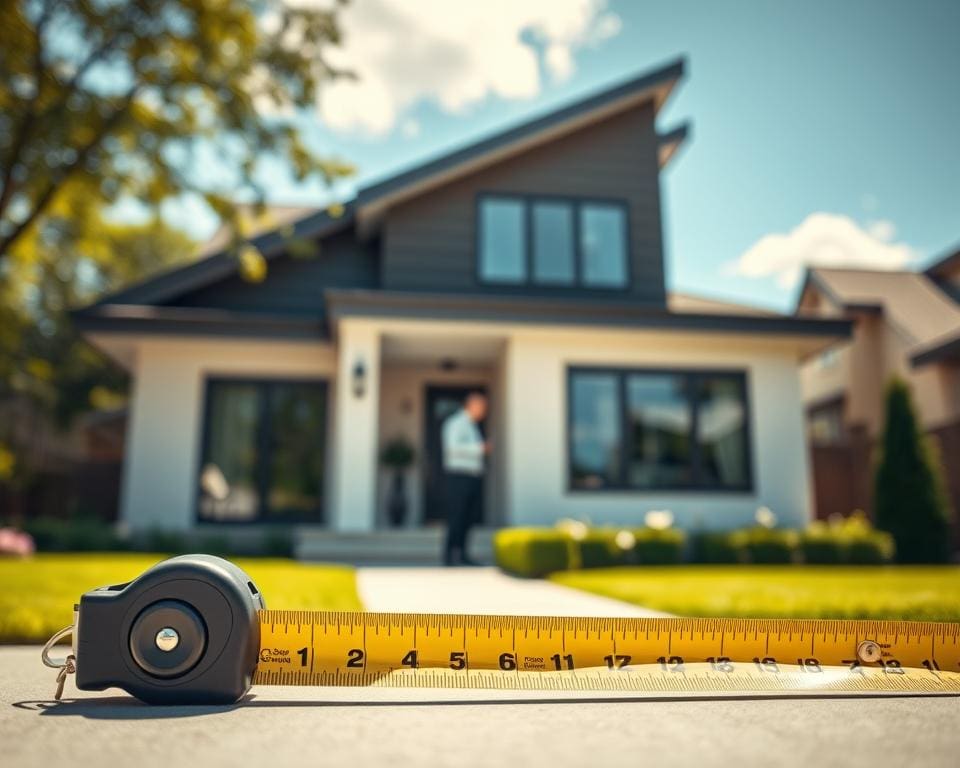Understanding how long a house valuation remains valid is crucial for anyone navigating the property market. A house valuation serves to establish the market value of a property, whether for buying, selling, remortgaging, or investment purposes. However, the validity of such valuations is not fixed; it can change over time due to various influencing factors. In this section, we will delve into the concept of house valuation expiration and highlight the importance of recognising how long a property appraisal duration is relevant in today’s dynamic market landscape.
Understanding House Valuation Expiration
Recognising the factors that influence house valuation expiration is essential for homeowners and prospective buyers alike. The residential property evaluation length can significantly vary based on numerous elements, such as the state of the property and surrounding economic conditions. Understanding these factors can help manage expectations regarding the duration of valuation validity.
Key Factors Influencing Valuation Duration
Several key factors can affect how long a house valuation remains relevant:
- Market Dynamics: Fluctuations in the property market can quickly alter the assessment of a home’s value.
- Property Condition: An unmaintained property may see its valuation decrease more rapidly than one that is well cared for.
- Local Economic Conditions: Changes in the economy can influence demand and availability, impacting property values.
Comparing Different Types of Valuations
It is important to differentiate between various types of property valuations to understand their appraisal report validity effectively:
- Market Appraisals: Often conducted by real estate agents, these provide an estimated value based on current market trends.
- Mortgage Valuations: Conducted for lenders, primarily to secure a mortgage loan, these valuations may not consider all features of the property.
- Formal Valuations: Carried out by chartered surveyors, these offer a comprehensive assessment and are often required for legal transactions.

How Long Is A House Valuation Valid For
Understanding the validity of a house valuation is crucial for anyone navigating the property market. Typically, most residential property valuations remain valid for a period of three to six months. This home valuation timeframe can vary based on several factors, including market volatility and regional characteristics.
Typical Validity Periods for Residential Properties
Generally, a property assessment time limit aligns with the evolving nature of the housing market. During stable periods, a valuation may hold for a longer duration, whereas, in dynamic markets, such as London, fluctuations can render a valuation outdated more swiftly. Buyers and sellers should remain conscious of these variations to ensure they are making informed decisions based on the most current data.
Regional Differences in Valuation Validity
Differences in house valuation timelines are particularly pronounced across various regions in the UK. For instance, urban areas often exhibit a more fast-paced market, necessitating a shorter home valuation timeframe due to rapid price changes. Conversely, properties in rural settings may enjoy a longer validity period due to less volatility in their respective markets. Understanding these regional nuances can empower homeowners to navigate their property’s assessment timeline effectively.
Impact of Market Changes on Property Appraisal Duration
Market dynamics play a pivotal role in determining property appraisal duration. Economic fluctuations can lead to swift changes in housing markets, affecting the accuracy and validity of property valuations. Understanding these influences allows property owners and buyers to navigate the complexities of real estate with greater awareness.
How Economic Fluctuations Affect Valuation
Economic fluctuations often result in significant shifts in property values. An upswing in economic conditions can lead to increased demand for homes, which in turn may shorten the property appraisal duration. Conversely, during economic downturns, values may plummet, rendering existing valuations outdated almost immediately. This volatility highlights the necessity of regularly updating assessments to reflect current conditions.
Case Studies: Valuations Before and After Market Shifts
Real-world examples illustrate the impact of market shifts on housing valuation duration. In a recent case, a residential area experienced a boom due to new infrastructure developments, leading to a dramatic rise in property values. Appraisals conducted before the announcement became irrelevant as prices surged, emphasising the need for timely evaluations. Another instance involved a sudden economic contraction that prompted a decrease in demand, resulting in previously high appraisals becoming unrepresentative of the current market situation.
Real Estate Assessment Validity Period Explained
Understanding the real estate assessment validity period is essential for anyone invested in property. Various regulatory frameworks, such as those outlined by esteemed bodies like the Royal Institution of Chartered Surveyors (RICS), shape the guidelines for property valuations. These regulations serve to standardise assessments and protect both buyers and sellers in the ever-evolving property market.
Important Regulatory Guidelines to Keep In Mind
When considering property valuations, it is crucial to observe specific regulatory guidelines that govern the real estate assessment validity period. These guidelines emphasise the need for:
- Regular updates to valuations to reflect changing market conditions.
- Use of qualified professionals to carry out assessments, ensuring accuracy and credibility.
- Documentation of all valuation activities for transparency and accountability.
Best Practices for Maintaining Accurate Valuations
Implementing the best practices for maintaining accurate valuations significantly enhances decision-making for homeowners. Key strategies include:
- Reviewing property valuations at regular intervals to account for fluctuations in the market.
- Engaging with professional surveyors and appraisers who possess local market expertise.
- Monitoring the house value expiry date closely to prevent reliance on outdated assessment values.
Keeping Track of Your House Value Expiry Date
For homeowners, being aware of the house value expiry date is crucial for making sound financial decisions. One effective way to stay on top of your housing valuation duration is by setting calendar reminders. These can alert you when it’s time to seek a new property assessment, helping ensure you’re never caught off-guard, especially in a dynamic market where property values can fluctuate rapidly.
Regular communication with estate agents also plays a vital role in tracking the property assessment time limit. Establishing a routine check-in can provide you with insight into current market trends and help you understand when a new valuation may be necessary. Moreover, many agents can offer tailored advice based on local market conditions, thereby empowering you to make informed choices.
Utilising property valuation tools or specialised apps can further streamline the process of monitoring your house’s value. These resources can provide real-time updates on market changes and alert you to shifts in property values, ensuring you remain proactive. Keeping informed about property value trends is essential for navigating the competitive landscape of the UK housing market, whether you’re considering buying, selling, or refinancing your home.









